Debt Settlement in New York
Debt Settlement Experts
Are you drowning in debt and overwhelmed by constant stress? At Second Start Financial, we understand the challenges that come with excessive debt, and we’re here to help. We know that many hardworking New Yorkers are struggling to keep up with credit card bills, medical expenses, and other unsecured debts, often due to circumstances beyond their control. That’s why we’re dedicated to providing personalized debt settlement services to help you achieve financial freedom. Our experienced professionals will work with you every step of the way to create a customized plan that fits your unique needs and goals. With our help, you can break free from the burden of debt and start building a brighter financial future.

How Professional Debt Settlement
New York Can Help You

Avoid Bankruptcy
Prevent the long-term consequences of bankruptcy by settling your debts instead.

Lower Balances
Negotiate with creditors to reduce your outstanding balances and pay less than you owe.

One Monthly Payment
Simplify your debt repayment process by making a single, affordable monthly payment.

Stop Collections
End harassing calls and letters from collection agencies by enrolling in a debt settlement program.

Tax Benefits
Understand the potential tax advantages of settling your debts for less than the full amount.

Become Debt-Free
Achieve financial freedom faster by resolving your debts through professional debt settlement services.

Our Proven Debt Settlement Process
At Second Start Financial, we follow a proven debt settlement process to help you achieve the best possible results. Here’s what you can expect:
1. Free Consultation: We’ll review your financial situation, explain your options, and determine if debt settlement is right for you.
2. Personalized Plan: We’ll create a customized debt settlement plan based on your unique circumstances, including your debt amount, income, and goals.
3. Dedicated Account: You’ll open a special account and make monthly deposits, which will be used to settle your debts.
4. Expert Negotiations: Our skilled negotiators will work with your creditors to achieve the lowest possible settlement amounts.
5. Debt Resolution: Once a settlement is reached, we’ll facilitate the payment to your creditor and ensure the debt is properly resolved.
BLOG
Our Latest Blogs

What is a 529 Plan and How Does it Work?
Are you worried about how to save for your child's future because school prices are going up? There's a chance that a 529 plan will help you. We'll talk about what a 529 plan is, how it works, and why it's a great way for parents to save money for their kids' college education.
You may like to read our latest blog on Signs That Show You Need Debt Counseling
What is a 529 Plan?
A 529 plan is a savings account that helps families save money for college costs while also giving them tax breaks. Section 529 of the Internal Revenue Code made these kinds of savings accounts possible in 1996. The plan is named after that section.
There are two kinds of 529 plans: plans that pay for college ahead of time and plans that save money for college. With prepaid tuition plans, you can buy points at colleges and universities that participate that can be used for future tuition and required fees at the prices that are in effect right now. Education savings plans, on the other hand, let you open an investment account to save money for qualified college costs like tuition, required fees, room and board.
How Does a 529 Plan Work?
You must pick a plan sponsor before you can start a 529 plan. A plan sponsor can be a school, the state government, or an office of the state. It's important to think about your wants and pick the plan that fits them best because each one has its own rules and investment options.
After picking a plan, you'll need to open an account and name a recipient. The beneficiary is the person who will use the money to pay for school. Someone you choose, like yourself, a child, a grandchild, or even a friend, can get the money.
Following that, you need to pick an investment. Most 529 plans offer a variety of investment portfolios, some of which are based on the beneficiary's age and change immediately as the beneficiary gets closer to college age. You can also pick your own mix of investments based on how much risk you are willing to take and your financial goals.
The tax breaks that come with a 529 plan are one of its best features. When you put money into a 529 plan, you do so after taxes. The gains grow tax-deferred, and withdrawals are tax-free if they are used for qualified education costs. Some states also let you get tax breaks or credits for putting money into a 529 plan.
A 529 plan is also helpful because it is flexible. If the beneficiary doesn't want to go to college or gets a grant, you can change the beneficiary to another family member who meets the requirements without any fees. You can also take the money out for reasons other than school, but you'll have to pay taxes and a 10% penalty on the gains part of the withdrawal.
Why Choose a 529 Plan?
There are many good reasons why a 529 plan is a great way for families to save money for college. It's a tax-friendly way to save for college first and foremost. You might be able to save a lot of money on taxes over the life of the account if you put money into a 529 plan.
There are many ways to use a 529 plan, which is another reason to pick it. Different from other types of education savings accounts, like Coverdell Education Savings Accounts (ESAs), 529 plans don't have age or income caps. No matter how much money they make or how old the receiver is, anyone can put money into a 529 plan.
Finally, a 529 plan is a great way for grandparents and other family members to help pay for a child's college. As long as the contributions don't go over the yearly gift tax exclusion limits, grandparents and other relatives can make contributions to a 529 plan without having to worry about gift tax consequences.
FAQs
1. What happens to the money in a 529 plan if the beneficiary doesn't go to college?
If the beneficiary doesn't want to go to college or gets a grant, you can change the beneficiary to another family member who meets the requirements without any fees. You can also take the money out for reasons other than school, but you'll have to pay taxes and a 10% penalty on the gains part of the withdrawal.
2. Can I use 529 plan funds for other education expenses besides college?
Yes, you can use money from a 529 plan for many things related to education, such as K–12 fees, apprenticeship programs, and paying back student loans. But every plan has its own rules and limits, so before you take any money out, you should always check with your plan sponsor.
3. Are there any limits on how much I can contribute to a 529 plan?
You can put any amount of money into a 529 plan every year. However, each plan has its own lifetime contribution cap, which is usually well over $300,000. Donations that are more than the yearly gift tax exclusion limit may be subject to gift taxes. Before making any big donations, it's a good idea to talk to a financial advisor or tax professional.
Final Thoughts
There is a great way for families to save money for college called a 529 plan. A 529 plan can help make the dream of going to college come true by giving tax breaks, giving you options, and letting more than one family member contribute.
You might want to talk to a financial advisor if you want to know more about 529 plans or have questions about your own case.
Get in touch with Second Start Financial right away if you're having trouble with debt and need help getting back on track. Their team of experts can help you make a custom plan to settle your debts and work with your debtors to get your debts lowered and your finances back on track. You can reach your goals even if you have debt. Start the process of getting a better financial future with Second Start Financial.
Debt FAQ's
What is debt settlement?
Debt settlement is a process where a debtor and creditor agree to settle a debt for less than the full amount owed. This can help the debtor pay off their debt more quickly and affordably than continuing to make minimum payments.
How does debt settlement work?
Our debt settlement program works by negotiating with your creditors to settle your debts for less than the full amount owed. You make regular payments into a savings account, which we use to negotiate with your creditors on your behalf. Once a settlement is reached, you make a one-time payment to settle the debt.
Will debt settlement affect my credit score?
Yes, debt settlement may have a negative impact on your credit score. However, if you’re already struggling with high levels of debt, your credit score may already be affected. Our goal is to help you become debt-free as quickly and affordably as possible, so you can start rebuilding your credit score.
What types of debt can be settled?
Generally, unsecured debts like credit card debt, medical bills, and personal loans can be settled through our debt settlement program. However, certain types of debt like student loans and tax debt cannot be settled through debt settlement
How long does debt settlement take?
The length of the debt settlement process can vary depending on your specific financial situation and the amount of debt you have. However, most of our clients are able to become debt-free in 24-48 months.
TESTIMONIALS
A few years ago, my husband and I enrolled in this program, and it was a lifesaver. It truly helped us out of a difficult situation.
Claire Martinez
I couldn’t have hoped for a better solution to help me with my debt. Second Start Financial has exceeded my expectations and helped me pay off my debt sooner than I anticipated. The approval process was quick and painless, and now I’m on my way to regaining control of my life and improving my creditworthiness. Thank you so much!
Samantha Bailey







At Second Start Financial, we are dedicated to helping you regain control of your life. Our mission is to provide you with effective debt relief solutions that address your unique financial situation.
At Second Start Financial serves the following States only:
Alabama | Alaska | Arizona | Arkansas | California | Colorado | Florida | Georgia | Idaho | Illinois | Indiana | Iowa | Kentucky | Louisiana | Maryland | Massachusetts | Michigan | Mississippi | Missouri | Montana | Nebraska | Nevada | New Jersey | New Mexico | New York | Ohio | Oklahoma | Pennsylvania | South Dakota | Tennessee | Texas | Utah | Virginia | Wisconsin
Disclaimer:
Second Start Financial Inc is not a Broker or Lender. The role of Second Start Financial is to connect potential borrowers with lenders and financial service providers. Second Start Financial does not provide credit offers or solicit lending. The website and its operators solely offer a connection/matching service and are not agents, representatives, or brokers of any lender. They do not make credit decisions and do not charge potential borrowers for any loan or product.












